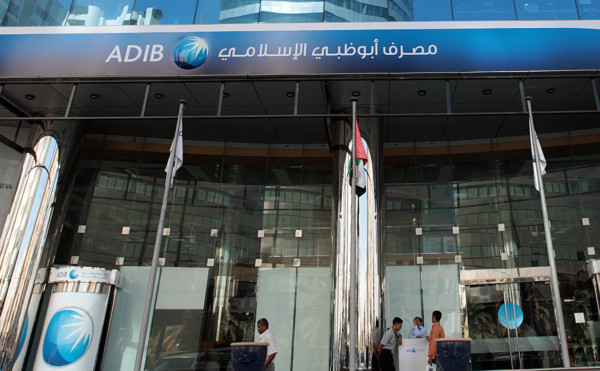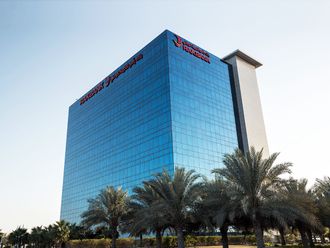
Dubai: A $1 billion sukuk issue by Abu Dhabi Islamic Bank this month may start a trend that was probably not contemplated by the founders of modern Islamic finance: Islamic bonds may become a key tool for banks to meet tightening capital rules.
The trend could add further momentum to a global boom in sukuk issuance. It could also ease pressure on banks which find it hard to raise capital from equity issues as global financial instability depresses stock markets.
Adib attracted a spectacular order book of over $15 billion for this month’s $1 billion perpetual sukuk, which has no maturity date; Adib can choose to repay the bond on certain dates from 2018 if it wishes.
The hybrid sukuk was the first to be publicly issued by a bank to meet the Tier 1 capital requirement in Basel III global banking standards that will be phased in around the world over the next several years — although Adib privately placed a $2 billion Tier 1 note in 2009.
Features such as the subordination of sukuk holders and the conditionality of payments — ADIB can halt periodic distributions to investors if it wishes — mean sukuk behave more like equity than debt, which is favoured by the new Basel standards, said Alex Roussos, counsel at Norton Rose in Dubai.
“We are likely to see more of it in this market in the near future,” he said.
Even before Adib’s issue, sukuk issuance was rising sharply; globally, $109 billion worth of sukuk were issued in the first nine months of 2012, up 69 per cent from a year ago, according to research by Zawya, a Thomson Reuters company.
But supply still appears to be far from satisfying demand among cash-rich Islamic institutions in the Gulf and southeast Asia; outstanding global demand for sukuk totals about $300 billion, according to an estimate by Ernst & Young.
Furthermore, Adib’s hybrid sukuk helped to open up a new investor base for Islamic bonds; private banks catering to wealthy individual clients were allocated 60 percent of Adib’s issue, in contrast to most regional bond issues which are snapped up by other bank investors.
So Adib’s success may over the next one or two years prompt a wave of hybrid sukuk issues by banks raising capital.
“The prospects are good and Adib’s success is a positive precedent for other banks. The Adib issue provides a good benchmark for other GCC (Gulf Cooperation Council) issuers who are thinking of accessing this market,” said Ahsan Ali, head of Islamic origination at Standard Chartered Saadiq.
“We expect to see the issuance of hybrid instruments over the next 12 to 18 months as implementation of new regulatory guidelines takes effect in various countries.”
Some bankers said that in addition to meeting Basel III standards, Gulf banks might use hybrid sukuk to bridge the gap between rapid loan growth and slower deposit growth.
Qatari and Saudi lenders are likely candidates. Deposits in Qatari commercial banks grew 16.1 per cent year-on-year in September while total credit jumped 32.2 per cent, according to central bank data; Saudi bank deposits grew 11.8 per cent while bank loans to the private sector climbed 14.8 per cent.
Obstacles
Despite the euphoria over Adib’s sukuk, there are several obstacles to its success being repeated on a large scale.
Because perpetual sukuk are so similar to equity, they are seen as relatively risky; one banker said he believed that in the Gulf, only banks from Abu Dhabi or Qatar could feasibly get such a deal done, because governments there have directly supported local banks. Perpetual sukuk will be less welcome in markets where state support is less firm, he said.
Adb, rated A+ by Fitch and A2 by Moody’s, was able to price its sukuk very cheaply compared to conventional hybrid bonds issued by Western banks over the past year. Its perpetual carried a 6.375 per cent profit rate.
By contrast, Dutch lender Rabobank, rated two notches higher by Fitch and three notches higher by Moody’s, priced a Tier 1 conventional perpetual at 8.4 per cent in November last year. Earlier this year, Banco do Brasil
raised $1.75 billion of Tier 1 perpetual bonds at a yield of 9.25 per cent.
Adib’s sukuk has performed strongly in the secondary market, another sign of demand for such paper. It was bid at 103.6 cents on the dollar on Thursday, yielding 5.7 per cent, according to Thomson Reuters data.
It is not clear, however, whether banks outside the supportive environment of Abu Dhabi could price their hybrid sukuk so cheaply. And because of their newness, hybrid sukuk could face regulatory risk for issuers — the danger that authorities might decline to accept them as high-grade capital.
“In questions of eligibility, it will be up to national supervisors to determine if a specific issuance qualifies,” said a spokeswoman at the Bank for International Settlements, which provides the Basel Committee with its 17-member secretariat.
This month, the Kuala Lumpur-based Islamic Financial Services Board released draft guidelines on capital adequacy for Islamic banks, shedding light on the types of sukuk that could be classifed as bank capital. The IFSB aims to introduce the final standard in December next year. But its guidelines are not binding on national regulators.
While Tier 1 instruments essentially carry only market risks, issuing sukuk to raise Tier 2 capital under Basel III could prove more problematic for scholars and rating agencies because it combines market and credit risks, said Tariqullah Khan, professor of Islamic finance at the Qatar Foundation.
“This issue of market risk and credit risk is tricky...often leading to increased structure risk of a sukuk,” he said.
Under Basel III, Tier 2 sukuk could be difficult to accept because of concerns relating to the subordination of debt, according to Simon Archer, visiting professor at the University of Reading and consultant to the IFSB’s capital adequacy working group. “There are some grey areas,” he said.
Gulf lenders such as Commercial Bank of Qatar, Burgan Bank, Saudi Hollandi Bank and Bank Al Jazira have all sold Tier 2 instruments in recent years to comply with the previous Basel II rules.
Saudi Arabia’s regulator has said it will allow Tier 1 and Tier 2 instruments that no longer qualify under Basel III to be phased out over a 10-year period beginning in 2013.
Mudaraba
Despite the obstacles, the use of hybrid sukuk to raise bank capital seems to have strong ideological support in the Islamic finance industry, so institutions will find ways to issue Tier 1 and Tier 2 hybrids, analysts said.
Their equity features make them appealing from the point of view of Islamic finance, said Madzlan Hussain, Malaysia-based partner and head of Islamic financial services at law firm Zaid Ibrahim & Co.
“Sharia scholars in particular have been calling for more equity-like and equity-based products in the domain of the Islamic finance market, and a departure from debt-like and debt-based products,” he noted.
Ali at Standard Chartered Saadiq said the market might favour Adib’s Mudaraba format, which is based on an investment management partnership.












